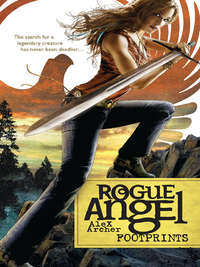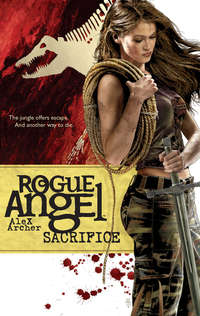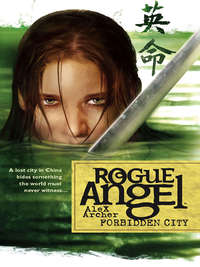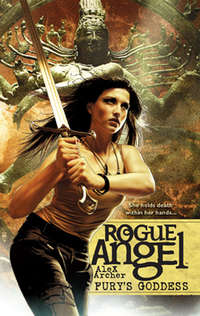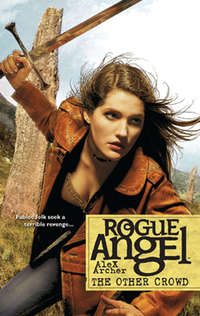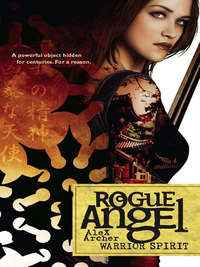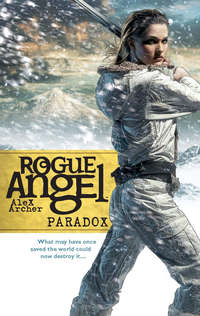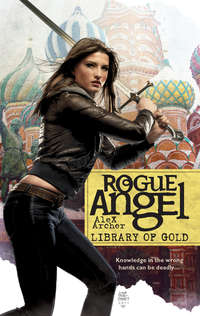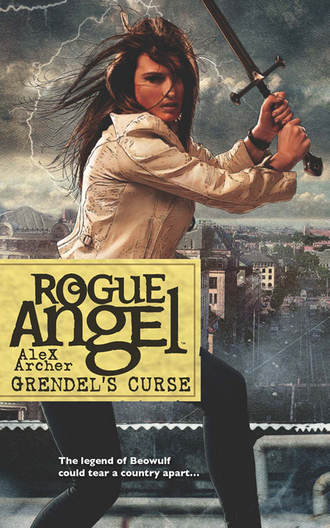
Полная версия
Grendel's Curse
“Seamlessly? It doesn’t exactly fit the poem, does it?”
“In terms of what we actually know, it’s difficult to say anything with certainty. The poem may have been composed as an elegy for a seventh century king like Böðvar, corrupting his name over time, but there’s little surviving evidence to indicate who it was actually written about, much like King Arthur. It’s a legend. And with all poems of the time, it has evolved with the telling and retelling. We have no idea who the original author was. Indeed, there’s as much as three hundred years between its composition and the oldest surviving manuscript, which remains unnamed. The poem itself wasn’t called Beowulf until the nineteenth century. Indeed, from the 1700s it was known as Cotton Vitellius A.XV, after Robert Bruce Cotton, the manuscript’s owner, and there was no transcription of it until 1818.”
She had heard much of this before, but Lars’s passion when he started in upon the subject close to his heart made every word fascinating.
“The burial rites described in Thorkelin’s Latin transcription bear a strong resemblance to evidence found at the Anglo-Saxon burial site at Sutton Hoo. Likewise Grundtvig’s Danish translation and Kemble’s subsequent modern English version echo the same funereal rites.”
“But wasn’t Beowulf’s body burned in a funeral pyre on a boat?” Annja recalled having read several retellings of the story as a child long before she’d ever encountered a direct scholarly translation. The image of the burning boat was always one that had stuck with her. If she closed her eyes she could see the flames and feel their heat on her skin. Fire.
“You are correct. The image of the Viking funeral boat sailing out ablaze does provide for a much more dramatic conclusion to the tale. Though I truly believe there has to be a reason why the site of Skalunda has become so intrinsically linked with everything we believe to be true about our hero. Stories don’t endure without a grain of truth to them, do they?”
It was a question she couldn’t answer, but she wasn’t entirely convinced by his reasoning. Yes, it made sense that the poem would have been changed over time. The only extant copy of the original showed at least two authors, and the story itself was riddled with dichotomies of paganism versus Christianity, which supported the notion that each subsequent teller of the epic tale had added their own beliefs to the core story, but was burial really a part of Nordic culture of the time?
“Well,” she said wryly, “the answer’s only a backbreaking dig away.”
3
They had been at it until well into the night, working in shifts and stopping occasionally for food, but now that the sun had finally set and everyone had been sent home, Lars could savor the scene. It was real. It was happening. After all of the paperwork, all of the begging, all of the disappointments, they were finally here, digging down to what could well be the biggest discovery of his lifetime.
He allowed himself a small smile.
Putting the dig together had been a herculean task, and while they were still a long way from finding anything, the sense of satisfaction he felt surveying the site couldn’t be denied. They could make do without the backhoes and all of the other machinery. It was all about what was down in the ground now. The team had spent most of the first day clearing the ground, cutting and rolling away a strip of turf a few inches deep to reveal the undisturbed soil beneath, then marking it so the sod could be relaid exactly where it had been. It had taken hours of painstaking work, but the students had put in a full shift, cutting out a trench almost six feet deep, three wide and fifteen long.
It had been a good day, and they’d ended it with a ritual wetting of the site, sharing a beer while they cleared the equipment. It had been one of the students who’d come up with the idea to have that beer out of an old horn, each taking a sip and passing the horn around the circle until it was empty. It was a nice ritual, and very in keeping with the nature of the dig. Then they’d taken a few shots to immortalize their handiwork for posterity, each of them standing beside the deep trench, beer horn in hand. They were all part of this great work, and for him there was no real difference between the workers and the queen. They were all in it together.
Bellis had taken a handful of the team who were bunked up in one of the caravans and headed into town in search of a bar, joking, “Tonight we drink, for tomorrow we dig!” It wasn’t exactly a war cry, but then, they weren’t going to war so it didn’t need to be.
The trailers were still in darkness.
A series of solar-powered garden lights lit up the trench.
Lars sat on the pile of turf that had been carefully set aside in numbered rolls and lit a cigarette. He breathed deeply, savoring the smoke before blowing it out in rings. He’d spent most of the day watching other people work. He was still full of energy and itching to play his part in the excavation. He knew that he wouldn’t be able to rest until he had at least got a little dirt under the fingernails. That would make it all seem real. That was just the kind of man he was.
He stubbed out his cigarette and went over to the main tent. The plans were laid out on the central table along with the geophys readings. He’d studied the information diligently and knew it like the back of his hand. The geophys readings were a little more complicated than the ones he was used to looking at; normally they would cover a flat stretch of a field while these ones were trying to plot the three-dimensional shape of the mound itself. He never tired of looking at those images. He’d watched the technicians with their equipment, taking carefully measured steps as the made their readings, one pace after another until they built up a picture of the shape beneath the ground. It was inspiring.
There was every chance that the body—if it had ever been there—would have been placed in a cavity, and sooner or later that would have collapsed in on itself, which meant they would have to deconstruct the entire barrow in the hopes of finding the remains. This wasn’t a quick two-week job. They could be here for the best part of a year or more painstakingly going over the ground before they found anything exciting.
Initial ground surveys suggested there was a change in the minerals in the mound, not much farther into it than they already were.
It could be nothing, but the shadow those minerals presented looked too uniform to be a natural phenomena.
Lars Mortensen had spent most of his adult life on digs like this. He knew not to make assumptions when it came to shadows on scans and what they might turn out to be, but he couldn’t help himself. He felt that itch just beneath his skin and it had to be scratched. An hour of digging, maybe two, and he’d break through far enough to at least make a reasonable guess as to what the curious shadow-shape was if not know for sure.
He picked up the heavy-duty lantern. Lars angled the beam directly at the scar in the side of the mound as he started to walk toward it. As the light played across the rich soil he thought he saw something glinting in the exposed earth. He swung the lantern, causing the light to roll, and again something caught the shifting light for a moment but no more. He played the light across it again, and again until he was sure he’d identified the source.
He assumed it was a shard of quartz that would have been barely visible as the team had worked in the setting sun, but it was worth investigating if for no other reason than satisfying his curiosity.
Lars set the lamp down on the edge of the trench so that its light filled it, and jumped down. It felt good to be right in the heart of it. He unhooked the trowel from his belt and knelt with a mixture of awe and excitement, placing his hands flat on the dirt. He almost imagined he could soak up everything this land had seen over the fourteen hundred years it had sheltered the hero. And for as long as his hands pressed into the earth he felt connected to each and every one of those years.
The glimmering caught his eye again. He knew it would be something and nothing, but he couldn’t shake the feeling that the single tiny reflection was calling to him like a beacon in the dark.
He ran a finger over the soil, sending a few tiny crumbs of earth tumbling away.
It wasn’t a tiny fragment of quartz or feldspar trapped in the exposed crust, that much was obvious. It was bigger than that.
He set the trowel aside and pulled out a brush. He knew it was clean. He’d cleaned it meticulously in preparation for the dig. He always did.
He gave the surface the lightest of touches with the tip of the brush, testing how easily it crumbled, if in fact it did.
He brushed aside more particles of earth while pressing his free hand a few inches below the gleam so he could catch every fragment that fell. It took time to reveal that the tiny reflection had come from something much larger than he could have reasonably expected.
With each brushstroke he revealed a little more of the gleaming surface, and the more dirt he brushed away the fiercer the gleam shone, taking on a peculiar blue-green iridescence in the beam of the high-intensity lamp.
He completely lost track of time while he worked.
Eventually he revealed its edge but carried on working around it, trying to find out just how big it was in the hope that it might give him a clue as to its purpose. The color reminded him of an oyster shell, but if that’s what it was, then it came from the biggest oyster he’d ever seen, and then some. It took time, but gradually Lars cleared away the dirt enough to make out that it was the size of a dinner plate. He brushed away a little more dirt until it was clear that there was a second one overlapping the first like a gray slate roof tile that had lost most of its luster, but there were still flakes that gleamed with that iridescent blue-green.
He wiped the brush free of dirt before slipping it back into his tool belt, and then reached for his trowel again. He ran its point along one of the exposed edges, working it slowly beneath the lip of the plate. He pressed gently on its handle with his free hand, testing its resistance before he even tried to work it loose, but even as he applied the slightest pressure it started to shift. He felt his heartbeat quicken as he fought back the rising mix of hope and panic. He had to stop himself from dropping his trowel to put both of his hands on the plate, but all of those years of discipline and training kept him from moving too quickly and damaging the artifact.
He had secured his trowel in place. As he did, he felt the plate shift, grinding grit between it and the overlapping second one. He relaxed his grip slightly and it started to ease ever so slightly out of the position it had been locked in for centuries.
He felt it give, just a touch, and then suddenly it came free from its neighbor.
It was heavier than he had expected, despite being wafer thin.
The edge bit into one of his fingers, slicing it deep and clean, like a freshly sharpened blade. His blood smeared across the surface of the strange artifact. He had no idea what it was—some kind of armor?
He was almost reverential as he lifted the find. He turned it over in the light to better look at both sides of it. The underside had none of the brilliance, even faded, of the topside. Lars reached up and placed it carefully on grass beside the lamp, intending to clamber out of the trench, and store the strange plate in the main tent, detailing its discovery and protecting the site from damp or moisture before turning in, but he didn’t do any of those things. Instead, he knelt back down in the dirt to examine the raw patch of earth he’d just exposed, curious to see if the plate was merely some decorative facing, or if he’d uncovered something more interesting.
He changed the angle of the lantern’s beam, shining it down on the newly exposed surface.
There was nothing there.
There was no earth, no stone behind where the tile had been.
Instead, there was a void beyond it.
He played the light inside, straining forward without resting his weight on the edge as he tried to peer down into the hole, but his own shadow made it impossible.
Instead, Lars reached inside, fumbling in the darkness.
His fingers touched nothing but air while the razor-sharp edges of the wafer-thin plates still in situ snatched and sliced at his sleeve, cutting into the fabric as easily as if it was paper, not heavy-duty cotton, as he withdrew his hand.
He reached in again, risking some of his body weight on the plates in front of him, and this time his fingertips brushed against something cold. He couldn’t reach it properly, though, whatever it was. He withdrew his arm carefully, painfully aware of just how impossibly sharp the exposed edge was even after all this time.
He tried the lantern, but again it failed to shed any illumination on what was down there, despite the fact that he knew there was something to see.
It could be nothing, of course—a piece of rock that had collapsed from the ceiling and fallen away into the air pocket, or part of another layer of lining in the barrow. It was unlikely, yes, but not impossible.
Lars tried to work the second plate out of place to make the hole wider. This time he only succeeded in gashing his hand on its edge.
Gritting his teeth, he tried again, leaning on the wafer-thin plate as he pushed down. It fell and was gone before he could stop it, falling into the air pocket and slicing through his hand as it went.
Lars fished a handkerchief from his pocket and wadded it up around the cut to stem the flow of blood. It was going to need stitches, but it could wait.
He shone the flashlight down through the enlarged aperture, revealing a mound of loose earth and, in the center of it, an uneven shape that lay partially exposed. Soil had fallen through the overlapping cracks in those strange plates to rain down on the treasures below.
He played the light around the confines of the chamber, surprised by how large it actually was—certainly considerably bigger than would have been necessary to house a single body, no matter how legendary the corpse. Colors and shapes reflected back at him as he realized that the whole of it was lined with those peculiar plates. That in itself could prove to be a major discovery.
His blood dripped into the burial chamber.
His handkerchief was soaked with it.
His hand stung as he tried to move it, but that was not going to stop him from being the first man to lay his hands upon the treasures of Skalunda Barrow in fourteen hundred years.
Lars lowered the flashlight inside, clearing away enough dirt to wedge it in place so that it lit up the tomb. The extra space he’d opened up meant he could lean in with his good hand and grasp the tantalizingly close shape in the dirt. His fingers scraped across it at first, before he managed to grip the treasure. Dirt flaked away at his touch, exposing rust-pitted iron.
It was almost as if the treasure sang to him.
Even in that instant, heart hammering, he still had the presence of mind to retrieve his brush and dust aside the accumulated debris of countless lifetimes to reveal the crusted metal rather than just tear it free of its earthly prison. He couldn’t reach in far enough to clear it all. He knew he ought to wait for the team to reassemble in the morning, and clear away more of those peculiar plates to get proper access to the barrow, recording everything as they went—everything photographed and logged—but knowing and doing were two very different monsters.
Lars slipped the brush back into his belt.
This is an archaeological dig, not a treasure hunt, he told himself, but that didn’t stop that familiar need-to-know hunger from pulling at him. It was why he did what he did. It was why he always knew he was going to make this discovery himself.
He wiped the sweat away from his forehead, trapped in indecision.
After what felt like an eternity he reached in and took hold of the pitted metal.
It was heavy.
Much heavier than he thought it would be.
As he lifted it, the piece of metal broke in two.
He cursed himself, certain that he should have left well alone, followed procedure and photographed it in situ first, but it was too late to stop now.
He gently removed the artifact from its resting place. He needed to use his free hand to support it as it came free of the ground. His blood smeared against the rust. He ignored the pain from more cuts from the razor-sharp plates as they bit deep in his flesh, and reverentially placed it on the ground beside him.
Lars checked the edge of the long piece of metal in the light. Where he thought it had broken in his hands, he saw the edge, too, was encrusted with rust for that to be the case. The edge was corroded, the rust all the way through it.
It made no sense at all.
His blood filled the pits along the length of the metal. The corrosion, he saw, was cracking where it had soaked up the moisture. It appeared to be blistering. He applied the slightest of pressure with the tip of his finger, and a flake of rust broke away. It took him a moment to understand what he was seeing, but when he did, he couldn’t quite believe his eyes. Far from being rusted through, the corrosion was more like a protective shell that had formed around the metal. Beneath it he saw a patch of silver metal that couldn’t possibly be as pure as it seemed. Lars picked and pulled urgently at the crust until he’d freed enough of the scab to be sure this was no ordinary twisted lump of metal he’d unearthed.
In less than a minute he exposed the impossibly gleaming sword. And he was in no doubt that was what he’d found. A sword, or part of one.
He scrambled back to his feet and looked inside the ocular again, seeing the unmistakable outline of the second piece of the sword lying just out of reach. So close and yet so frustratingly far away from his questing fingers. Still, he tried to get it, earning another deep cut for his pains, this one on the ball of his shoulder as he’d leaned in too far.
His only option was to go down through the opening, but he couldn’t do that while the razor-sharp edge was exposed so he slipped off his jacket, folded it double and laid it over the strange plate for protection. He had to use his injured hand to support himself as best he could—and it hurt but it was a pain he’d gladly suffer if it meant he could retrieve the rest of the sword. He bit back a scream of agony as blackness threatened to overwhelm him, his head dizzy with pain from the pressure he put on it. There was blood everywhere, smeared handprints all over the dig site and the opening that he’d have to explain in the morning. Still, it would all be worth it, he was sure of that. This sort of find came along once in a lifetime if you were lucky.
Lars Mortensen was lucky.
He dropped down into the tomb itself. It had filled in with sediment and landfall over the centuries. All that remained of the hero’s tomb was this air pocket; the rest of it was buried under more earth. He saw an edge of stone and realized it had to be the corner of the bier the warrior king’s corpse had lain on. He cursed himself for a fool; his presence here could be doing untold damage to the relics beneath him, but that didn’t stop him from crouching to dust away the layer of muck that crusted the second piece of metal before he worked it clear.
He weighed it carefully in his hands.
This sword killed monsters and dragons, he thought, and started to laugh slightly hysterically. Even if he didn’t believe the more fantastical elements of Beowulf’s story, there was no doubting the fact that the sword in his hands had taken lives.
He shivered and, taking care not to cut himself again, set the second part of the broken sword down beside the first. Then he tried to get a better look at the strange plates that tiled the wall of the tomb. They were unlike anything he’d ever seen before. He had no idea what they were and couldn’t wait to get them to the lab for testing. The light seemed to reflect eerily from some of the plates where they weren’t crusted and gray, giving the burial chamber a peculiar inner glow. There was no doubting this was the tomb of a hero. The effort that must have gone into fashioning the plates—never mind the genius that had preserved them for an eternity, keeping their edges sharp—was so far ahead of its time it was frightening. This was the work of a civilization that had marauded halfway across Europe, of course. Whatever the Romans achieved, the Vikings matched in their own way.
Lars clambered out of the tomb, savoring the invigorating air as the wind swirled around the mount. He’d never felt more alive in his life. This moment, right here, right now, was why he lived and breathed.
He knelt beside the two parts of the broken sword. It was impossible not to jump to conclusions, but he so desperately wanted to jump: he knew what he’d found. Even with the covering of an age of decay he knew what lay beneath the crust; this was a sword that had been broken centuries before, letting down its wielder when he needed it most. This sword could only be Nægling, the blade that had failed Beowulf even as he’d slain the dragon in its lair.
4
He couldn’t sleep.
Lars Mortensen had taken the pieces of the broken sword back to his caravan and cleaned more of the corrosive grime from the blade.
He had a decision to make and he had to make it quickly.
There was no doubt in his mind what he had in his hands, and the ramifications that went with the find.
This was why Karl Thorssen had wanted first look at any finds.
Nægling.
It was iconic.
It was exactly what he needed to tip the balance of the upcoming election in his favor. It was a symbol of everything Sweden had once been—a land of heroes, a land of kings, a land of purebloods and warrior spirits. He could see Thorssen holding it above his head, issuing the challenge to his opponents, rallying his followers.
And that was the last thing he wanted.
How could he possibly let something so culturally significant, something so historically important, be used for Thorssen’s fascist agenda?
He’d been prepared for the discovery of an empty tomb, even the decayed remains of a long-dead warrior, but not this, he realized. Despite everything he’d never really believed Beowulf existed. Who fought monsters and dragons in the real world? No one. But here was the evidence of the man if not the legend, right here on his workbench.
Nægling.
It was one thing to have Thorssen’s name attached to a discovery, like some benevolent shadow-figure lurking in the background, a man whose money had made it possible, but it was quite something else to present him with Nægling knowing what he would do with it.
Lars had been on any number of digs over the years, and seen all kinds of finds, but not once had he encountered a find where the years of accumulated grime and decay had fallen away to reveal perfection. Cleaned up, the blade looked as though it had only gone into the ground yesterday.
It was nothing short of miraculous.
But miracles came at a price, didn’t they?
He lit another cigarette. Smoking didn’t steady his nerves, though. It wasn’t some magical cure-all. But it gave him something to do with his hands while he obsessed over the ethics of what he was considering. He’d discovered the sword alone. It wasn’t cataloged. No one had witnessed it. There were no photographs. There was nothing to say it had ever been in that hole. He could pretend it had never been found. He could take precautions to make sure it never fell into Karl Thorssen’s hands.
He wasn’t a doctor; he hadn’t taken some form of Hippocratic oath to always present the truth to the world. Sometimes not knowing was better, wasn’t it? In this case, given the choice of Thorssen using the blade as a focal point to rally his troops, turning himself into a modern-day Beowulf, surely it had to be, didn’t it?


